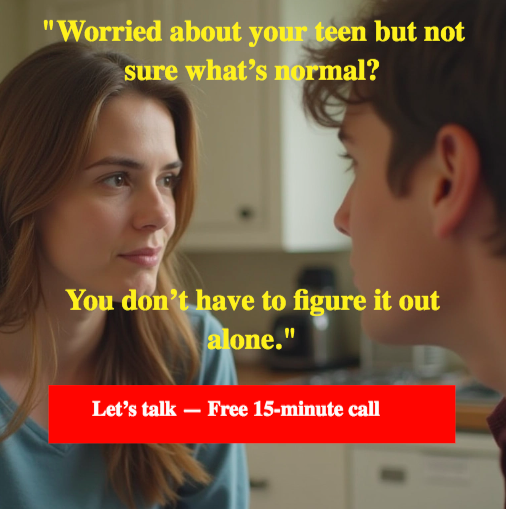The 7 Parenting Habits Nobody Shares (But Everyone Should)
Why Connection, Not Perfection is What Teens Need Most
People used to tell me what a great relationship Maddie and I had. And in many ways, they were right. We had our share of laughter, inside jokes, and moments I’ll cherish forever.
But that wasn’t the whole story. Just like the highlight reels we scroll through online, we often hide the parts we’re not proud of. Maddie and I had our struggles. I made mistakes, plenty of them. Because parenting doesn’t come with a manual, and no one gets it all right the first time….or the second time.
What I’ve learned since then is this: parenting isn’t about being perfect. It’s about building trust in the small, daily ways that matter most.
The 7 Habits of Highly Successful Parenting
1. Listen Without Trying to Fix
I used to think Maddie needed my solutions. What she really needed was my presence.
Habit Shift: Trade advice for open-ended questions.
Instead of, “Here’s what you should do,” try: “What’s been the hardest part of your day?” Then stop talking. Listen, not to fix, but to understand.
2. Stay Curious Instead of Reactive
Anger might feel powerful in the moment, but it closes doors. Curiosity keeps them open.
Habit Shift: Pause before you respond.
Ask, “What happened?” instead of “What were you thinking?” Calm creates safety, and safety builds trust.
3. Collaborate on Boundaries
Rules without input feel like control. Rules with collaboration feel like care.
Habit Shift: Bring your teen into the conversation.
“What do you think is a fair curfew?” doesn’t mean you’re giving up authority. It means you’re teaching respect by showing it.
4. Validate Before You Advise
When Maddie was hurting, I used to rush in with “You’ll be fine.” I thought I was helping. I wasn’t.
Habit Shift: Start with empathy.
“I get why this hurts. Want to talk it through?” When teens feel heard, they’ll trust you enough to hear your guidance.
5. Give Space Without Disengaging
Hovering sends the message you don’t trust them. Disappearing sends the message you don’t care.
Habit Shift: Stay close, but don’t crowd.
“I’d love to meet your friends when you’re ready” shows interest without pressure.
6. Support Instead of Push
When Maddie was stressed, I pushed harder, thinking I was preparing her for the “real world.” All I did was add weight she didn’t need.
Habit Shift: Normalize their stress.
“Of course this feels heavy. Let’s figure it out together.” Sometimes, support is the only solution they need.
7. Repair After Conflict
We all get it wrong sometimes. What matters is what happens next.
Habit Shift: Model repair.
“I was harsh earlier. I’m sorry. Can we start over?” Every apology is a chance to teach them what healthy love looks like.
One Habit at a Time
I’m not going to tell you parenting is easy, because it’s not. And I’m not going to pretend every teen will struggle if you don’t change, because that’s not true either.
Maddie was my firstborn, and she was the first to really hit turbulence in her teens. She was juggling divorce, two homes, new schools, new friends, and probably more than I even knew. And through it all, I learned this: we can’t fix our teens’ problems, but we can create a home where they feel safe enough to share them.
Because when the conversation stops? That’s when the real worry begins.
And if you need help bridging that gap, that’s why I built The MentorWell. Sometimes the most loving thing we can do is bring in another trusted adult who will listen without trying to fix.
Book to see if your teen is a good candidate for mentorship. Book your complimentary 15-minute call today.


